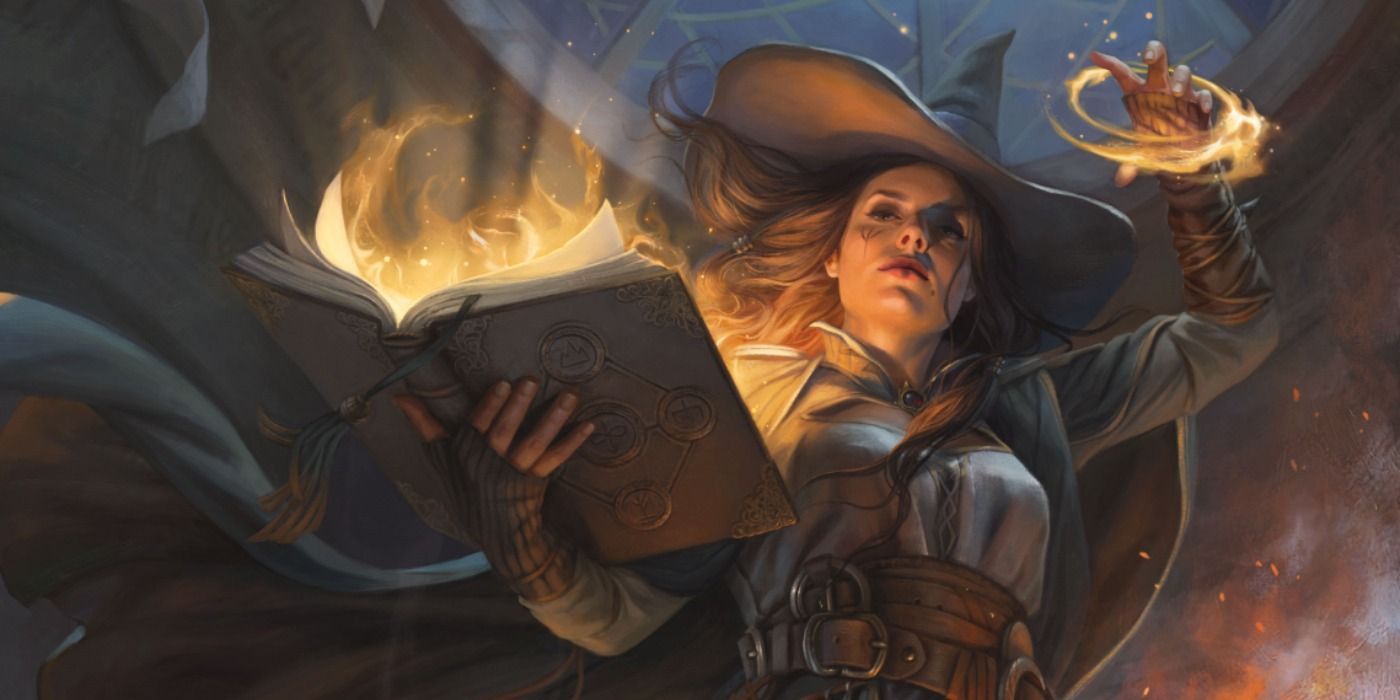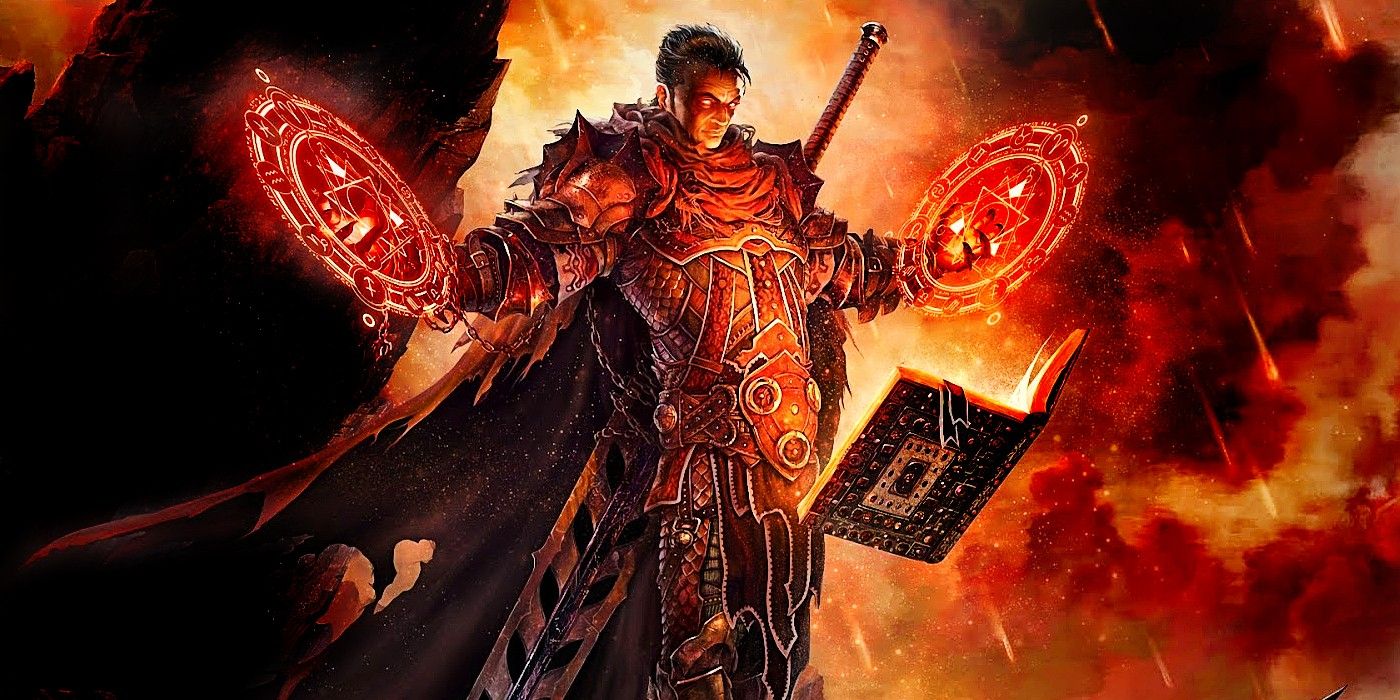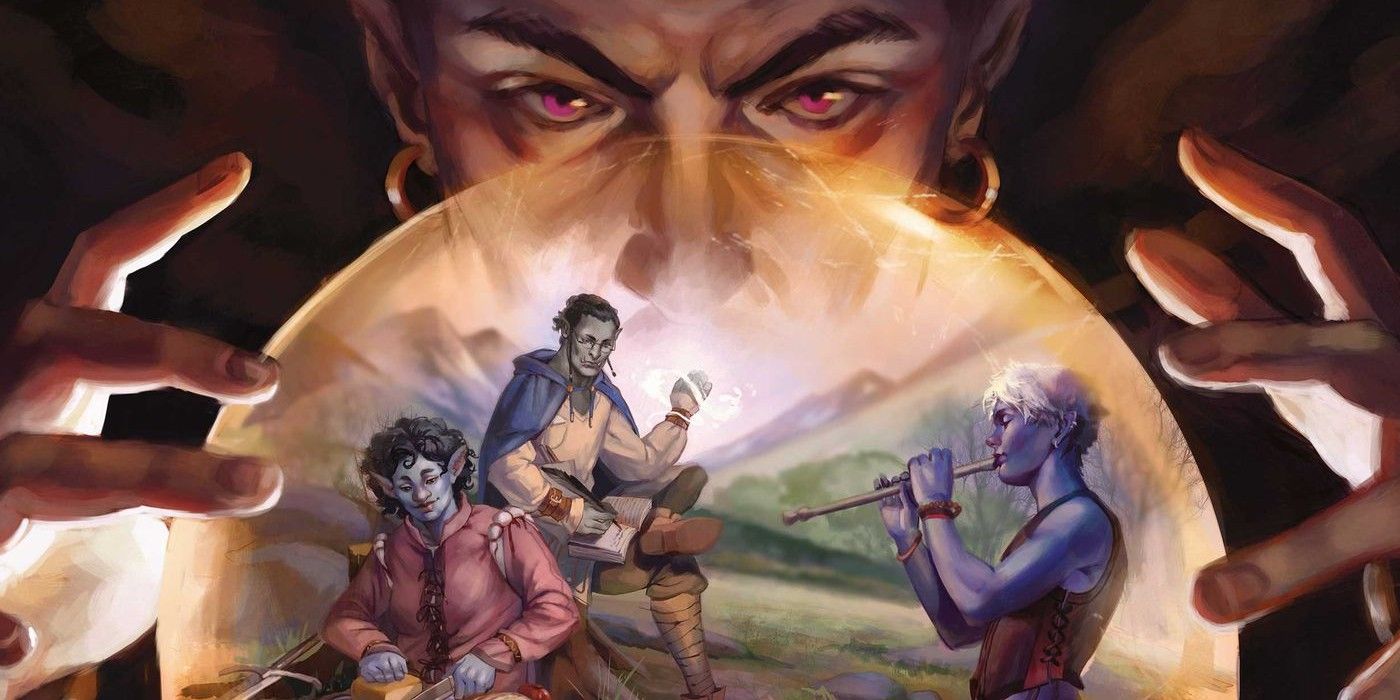One of the initial appeals of 5e Dungeons & Dragons was that the fresh start gave DnD another shot at game balance, but over the years since its release, numerous poorly thought-out elements have made it into the official rules, and Dungeon Masters should strongly consider banning them in their campaigns. Many DMs are already skeptical regarding unofficial homebrew DnD supplements and third-party mechanics in games, as they are frequently unbalanced, but some official material also lacks parity and should be just as scrutinized. Some break central game concepts like Bounded Accuracy, others skew the balance of classes or items, and a few are just too messy to be practical at the table.
It is easy to conclude that because something is published by Wizards of the Coast and produced by professional game designers it should be balanced, but experience suggests otherwise. No edition of DnD has ever been entirely the product of a single author, so a singular vision is not a realistic expectation. From a marketing standpoint, including more versatile or powerful character options in supplements gives them perceived value for players. For the first few years after its release, 5e DnD was very conservative towards any player-facing options, but recent years have seen that caution eroded, leaving it up to DMs to ensure balance, even where official material is concerned.
5 Chronurgy Wizard Subclass
Explorer’s Guide To Wildemount
Though it may seem like a third-party campaign world, the Explorer’s Guide to Wildemount made Critical Role an official DnD setting, since the book was published by Wizards of the Coast. This should not lead any DMs to believe the content is balanced against core 5e rules, as there are many overpowered elements, and the Chronurgy wizard subclass might be the worst offender. The initial class features are powerful, with the probability-altering Chronal Shift allowing rerolls, and Temporal Awareness adding to Initiative rolls. Arcane Abeyance is the first truly problematic ability, allowing the caster to pre-cast a spell into a bead which can be activated by another creature.
This ability circumvents the Concentration mechanic, since a Concentration spell could be cast by another character, or even a familiar. The same thing could be accomplished through a Ring of Spell Storing, but that item requires Attunement, which provides some inherent balance. Convergent Future further breaks game balance, as it allows the caster to outright force a success or failure on an attack, ability check, or saving throw. Automatic success is appropriately reserved for boss monsters with Legendary Resistance, and the ability to force a failed save is simply asking for abuse. DnD saving throws are an important part of monster balance, and forcing failures destroys that balance.
4 Spellcasting Items & Spellbooks
Tasha’s Cauldron Of Everything

Magic item balance in 5e DnD was messy since the original Dungeon Master’s Guide, but the newer magical implements and spellbooks in Tasha’s Cauldron of Everything’s made the problem worse. The DMG item Wand of the Warmage requires Attunement, its Rarity ranges from Uncommon to Very Rare for its +1 to +3 versions, and it adds its enhancement bonus to the accuracy of spells that use attack rolls. The Arcane Grimoire, and its other class-specific equivalents from Tasha’s, shares the same Rarity and Attunement requirement, but these items also add their enhancement bonus to the DC of spells that rely on saving throws.
The twofold problems of these superior implements are obvious on examination. Firstly, they make an existing item, the Wand of the Warmage, entirely obsolete, thereby a “trap choice” for games with purchasable or selectable magic items. Second, they destroy the Bounded Accuracy concept that was at the core of 5e DnD’s design. Bounded Accuracy keeps opposing figures like to-hit chances and Armor Class, or saving throws and spell DCs, within a tight range, so the d20 roll is always relevant. Since the 5e Monster Manual was designed before these items, a caster with spells up to 15 percent harder to resist shatters both Bounded Accuracy and encounter balance.

Related
Dungeons & Dragons: 10 Best Apps For D&D Players
From character sheets to dice rollers to map trackers and everything between, these are the most useful apps for D&D players to use.
3 Coffeelock Character Build
Warlock & Sorcerer Multiclass

Few players regard the warlock as DnD’s best spellcasting class, since its lack of high-level spell access holds it back, but online optimizers believed they stumbled onto a secret benefit to the class with the “Coffeelock” build. This bizarre concept combines levels in warlock and sorcerer and attempts to abuse the Short Rest and Long Rest mechanics to generate unlimited low- to mid-level spell slots. The essence of the build comes from warlocks regenerating their spell slots on a Short Rest. Sorcerer Flexible Casting allows the class to convert spell slots into Sorcery Points, then convert Sorcery Points into spell slots that last until the character’s next Long Rest.
The gimmick of the Coffeelock lies in never taking Long Rests, only a series of Short Rests, regaining spells from warlock each time, which are then converted into Sorcery Points, and then to more spell slots. These spell slots can theoretically be accrued indefinitely so long as the character never takes a Long Rest, hence the coffee moniker. There are a few built-in limits to this behavior, like the rules from Xanathar’s Guide to Everything that can cause Exhaustion Levels for going days without a Long Rest, which some players might counter with various methods to remove Exhaustion. The better answer is for the DM to just say no.
2 Broom Of Flying
5e Dungeon Master’s Guide

In the same way that items like the Arcane Grimoire make the Wand of the Warmage obsolete, the Broom of Flying renders items like Wings of Flying and Winged Boots pointless. Where the magical cloak and boots both require Attunement to provide a character with flight, the broom has no such requirement, and it also has no limits to the amount of flight it can provide per day. The Broom of Flying is absolutely among the most overpowered DnD magic items, but this stems mostly from its lack of opportunity cost for Attunement slots, or any limits to its flight. The broom can even be sent for autonomous delivery.
By far, the simplest solution is for DMs to eliminate this item, which leaves players to rely on the better-balanced flight items. If a DM is comfortable with use of the broom for travel, they could simply house rule that it is not usable in combat, which is certainly a reasonable approach, given the difficulties of swinging a sword or dodging an arrow while awkwardly astride a flying broom. With a 50-foot fly speed, no time limitations, and no Attunement requirement, there is no reason the whole party would not be spending the entire adventure on magical brooms, leaving it up to the DM to impose a much-needed ban.

Related
How D&D Can Help You In Real Life
D&D has many skills that transfer well into the real world, and by using D&D and those skills, players will have the tools to tackle many problems.
1 Simulacrum Spell
7th-Level Wizard Spell

It is commonly believed that high-level Dungeons & Dragons is inherently imbalanced due to the power of high-level spells, and Baldur’s Gate 3’s level 12 cap allowed Larian Studios to avoid implementing spells of levels seven through nine. In truth, given the tighter limits on high-level spell access in 5e DnD, this is less of an issue than some might expect. There are a few exceptions, and a major one comes from misuse of the simulacrum spell. The Coffee warlock can generate infinite spell slots if left unchecked, but simulacrum can generate infinite spellcasters. As of level 17, a wizard can access both simulacrum and wish, thereby breaking DnD.
If a wizard copies itself, the simulacrum has the spell slots the wizard has, though the copy can never regain spell slots. The copy can cast the spell again, since wish can duplicate the simulacrum spell, making another copy of the wizard. Based solely on the rules as written, nothing prevents a wizard from creating an army of copies, each of which would be lacking its levels seven and nine spell slots. It is up to the DM whether they want to simply add a house rule that a simulacra cannot cast the spell simulacrum, or ban it altogether, since an army of wizards will ruin any Dungeons & Dragons campaign.




